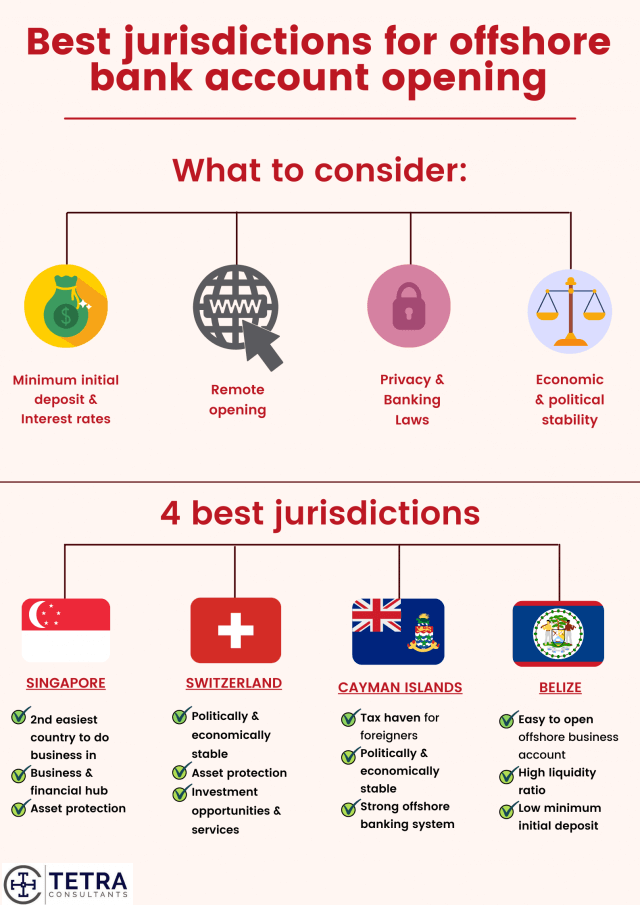The Ultimate Guide to BaoXing Bags
Explore the latest trends and styles in BaoXing bags.
Is Your Bank Account Feeling Stuffy? Try Offshore!
Unlock financial freedom! Discover how offshore banking can rejuvenate your accounts and boost your wealth. Explore new possibilities today!
Understanding the Benefits of Offshore Banking: Is It Right for You?
Offshore banking offers a myriad of advantages that can significantly enhance your financial portfolio. One of the primary benefits is asset protection. By placing your funds in an offshore account, you can safeguard your assets from economic instability, political unrest, or even frivolous lawsuits in your home country. Additionally, these accounts often provide greater privacy and confidentiality, allowing you to manage your wealth discreetly. This level of privacy can be especially appealing for high-net-worth individuals seeking to protect their financial information.
Another compelling reason to consider offshore banking is the potential for tax optimization. While strict regulations prohibit tax evasion, many individuals use offshore accounts to take advantage of favorable tax treaties and lower tax rates available in certain jurisdictions. Moreover, offshore banks typically offer investment opportunities that may not be available domestically, such as access to international markets and diversified portfolios. Before deciding, it is essential to evaluate whether these benefits align with your financial goals and risk tolerance.

Top 5 Offshore Banking Myths Debunked
Offshore banking often comes with a host of misconceptions that can deter potential clients from exploring their options. One of the most common myths is that offshore banks are only for the ultra-wealthy or those engaged in illegal activities. In reality, offshore banking is a legitimate financial service that is accessible to anyone looking to manage their wealth more effectively. These banks offer a variety of benefits, including asset protection, privacy, and diversified investment opportunities, making them an appealing choice for a broad audience.
Another prevalent myth is that all offshore banking accounts are unregulated and that clients risk losing their money due to fraud or bankruptcy. This statement couldn't be further from the truth. Many offshore banks operate under strict regulations, ensuring that client funds are safe and protecting against financial instability. It's crucial for individuals to conduct thorough research and choose reputable banks that uphold high standards of compliance and security.
How to Choose the Best Offshore Bank for Your Needs
Choosing the best offshore bank involves a careful evaluation of several key factors to ensure that it aligns with your financial goals and needs. First, consider the bank's reputation by researching its history, regulatory compliance, and customer reviews. You'll also want to analyze the services offered, such as international wire transfers, currency options, and investment opportunities. Creating a checklist can help you compare different banks effectively:
- Reputation and stability
- Available services
- Fees and minimum deposit requirements
- Accessibility and customer support
Next, assess the location and regulatory environment of the offshore bank. Different countries have varying levels of privacy, security, and government stability. It is essential to choose a jurisdiction that not only safeguards your assets but also complies with international banking regulations. Additionally, consider the ease of accessibility to your funds—both in terms of physical access and online banking options. By thoroughly researching and weighing these factors, you'll be better positioned to select the best offshore bank that caters to your individual financial needs.